Amanda Dlamini: The girl who took on her dad at his own game
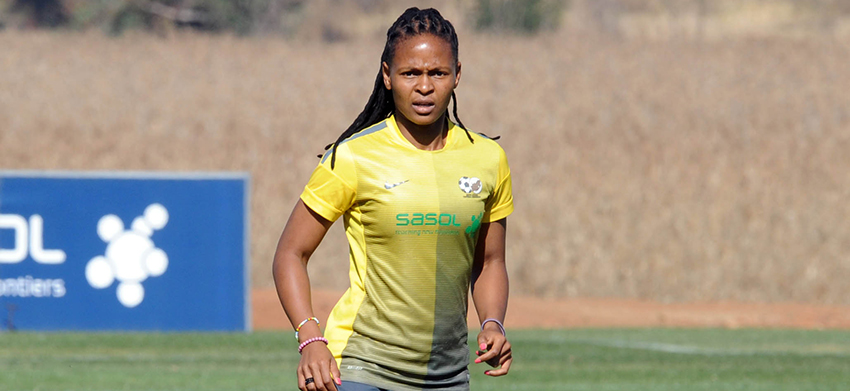
Girls in the African culture are known to revere their dads immensely. Even worse, in a place like semi-rural KwaZulu Natal it’s unimaginable to see a girl coming face to face with her dad on the football pitch. Unthinkable!
Take it to Venda, where Kaizer Chiefs’ new signing Phathutshedzo Nange was even afraid to call for the ball when he played in the same team with his dad at fourth tier side Shanzha Continentals.
Interestingly, that marked the end of Tshilidzi Nange’s career after a colourful stint with Black Leopards. He just could not continue after that game. Perhaps playing in the same team with his son made him realise it was time up for him.
Some 200km from Durban, in Harding to be specific, Amanda ‘Toki’ Dlamini did the unthinkable. It was just after the turn of the millennium.
Of course, when you read the entire ‘script’, you can blame circumstances that forced her to be fielded in a team opposing her dad’s. Playing with male opponents or even teammates was nothing new to her.
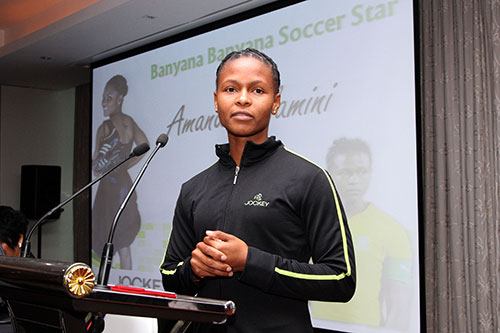
After dropping volleyball, netball and athletics, where she set a regional 200m record, she gravitated towards football.
In Harding, a semi-rural town that lies 84km north-west of Port Shepstone, football was not for girls. That’s why it became such a huge thing that a girl by the name Amanda Dlamini played with boys once she started.
“I started playing football mainly because with my first love athletics and volleyball I couldn’t go further than just at home and I couldn’t get a coach in athletics. At netball, sometimes the girls didn’t want to train. With football, every day the boys would be training,” Dlamini tells FARPost.
As you would expect, 11-year-old ‘Toki’ was not instantly thrown into the fray. It took several weeks of being a spectator, as if to prove she was as passionate as everyone else about the game.
One day, she found herself as the only girl on the football team. Same way she had excelled in athletics, she quickly found her feet in a ‘boys’ game’.
Thanks to her pace, she was often deployed as a flying winger on the right side of attack. “We were so confident playing with her because she was good. We didn’t even feel like we would lose possession by passing the ball to her,” her former Young Callies teammate, Sandiso Mkhwanazi, tells FARPost.
There was no looking back after a while of playing soccer. In any case, her athletics recollections were somewhat haunting. Running barefoot in the scorching heat of KZN left her and others with blisters under their feet.
“The track would burn our feet and when you got to the finals you had blisters under your feet. You didn’t wanna go back there,” she explains. Such was the dilemma. At least with football, grass feels cool and moist even on a hot day.
At that point, she had gained the trust of her schoolmates at Harding Secondary School. The boys were happy to have her blistering pace down the right flank.
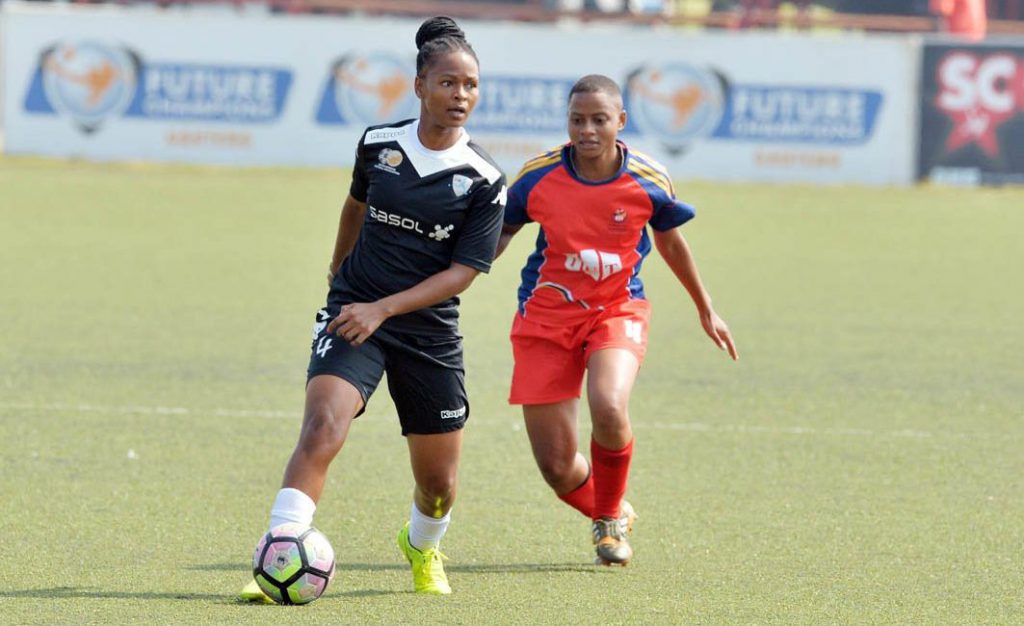
“That really encouraged me a lot,” she says in reference to the vote of confidence she got from her male counterparts. Her teachers then got wind of her talent and an initiative was launched to have her go to Durban where she could pursue her career.
But not before she showed her dad what she was made of. Occasionally, she would accompany dad, who was a teacher at her school, to the field to face off with other teachers. So, one day they were ‘one man’ short.
Interestingly, it meant she had to play against her dad’s team. The naughty child gave poor dad a young shibobo to the applause of everyone.
“I simply wanted to get past him,” the soft-spoken Toki says with her trademark modesty. “When it happened, I heard him saying ‘don’t do it’. I guess he knew what I was going to do and everyone ended up laughing that ‘your daughter dribbled you’. I was not embarrassing him or showing off, I was just enjoying myself.”
Her younger brother, Ayanda, remembers the day. While he may not have witnessed the unthinkable occurrence, he heard the two chuckling about it once they got home.
“When they got home they were having a chuckle about it,” Ayanda tells FARPost.
If dad ever had reservations that his only daughter was a gifted diski queen, then that was the moment it all changed.
Naturally, it wasn’t an easy thing to accept for mom, who was also a teacher. Perhaps that is the reason she handed her countless beatings for missing her 18h00 curfew because of training sessions. “I had to get good grades at school to convince mom that I could do both,” she says.
Ayanda, however, remembers one thing she could not sway mom on. With Young Callies’ matches usually played on Sundays, there was no convincing mom that she could miss mass to go and play football.
“We all had to go to church on Sunday,” he reveals. Mass, the central act of worship of the Roman Catholic Church, would run between 8am and 10am.
“She would go home and quickly change and then rush to the field. Her jog to the ground was actually her warm up,” adds Ayanda.
When a teacher found out about trials at Durban Ladies in 2004, he alerted Dlamini and everyone started raising funds to buy her soccer boots and help her travel there.
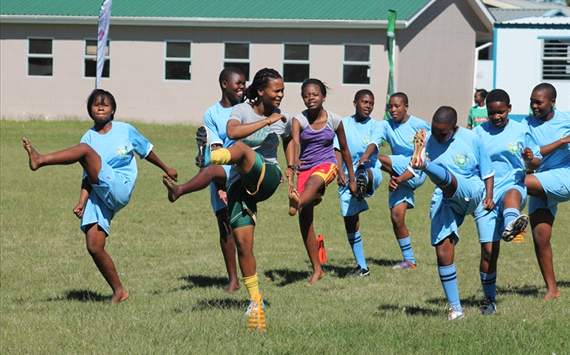
The next thing she was on a two-hour bus ride to eThekwini. Little did she know her life was about to take a stunning turn, thanks to football.
Mpumi Nyandeni, who came through the ranks of Mpumalanga-based Detroit Ladies, first saw her shortly after joining Durban Ladies. The former Banyana Banyana midfield ace says the pint-sized Dlamini operated with ferocious pace on the right wing.
“At the time, she was playing as a right winger, she had pace. We saw her as this tiny girl from Harding with pace and scoring goals,” Nyandeni tells FARPost.
The duo then shared a room in the national team when Dlamini was called up in 2007.
“I welcomed her to the national team. I remember telling her that if she wanted to play for the national team, she needed to have respect and follow instructions.
“Players [in Banyana] embrace you if you look like a good player, so they welcomed her very well,” says Nyandeni, who plays for JVW in the Hollywoodbets Super League.
Four years down the line, former Banyana coach Joseph Mkhonza sought a woman who would lead the team at the Olympics. But the self-effacing Toki, whose 105 caps yielded 24 goals, was never one for the limelight. She never wanted the armband.
“She was quiet yet she had so much influence. We wanted to make her captain but she said ‘no’,” Mkhonza tells FARPost.
He insists no one was more capable of leading the team than the 2008 Sasol Women’s League top goal scorer. So, he and his technical team devised a strategy. They were going to tell the then University of Johannesburg star that she would be captain for one game while they figured out who would be the right person to appoint.
“We told her she would only be captain in the next game and did the same after that game until it was three years,” Mkhonza says.
Her tenure as skipper, which included leading the first ever Banyana team to qualify for an Olympic Games to London in 2012, was so rewarding. In fact, he describes Dlamini, who became the fifth female star to win 100 caps for South Africa, as the glue that kept Banyana together.
“She even came up with this thing where we celebrated everyone’s birthday like family,” he recalls. Desiree Ellis, the current Banyana mentor, recalls how, even after she relinquished the captain’s armband, many still referred to her as ‘captain my captain’.
Understandably, retiring from international football in 2018 was one of her toughest decisions. She wept. Having been part of the system for 11 years, it was never easy to fly solo.
What followed was a journey of rediscovering herself. A fulfilling one for that matter. Brand ambassadorial roles with Danone , Jockey and Tsogosun followed.
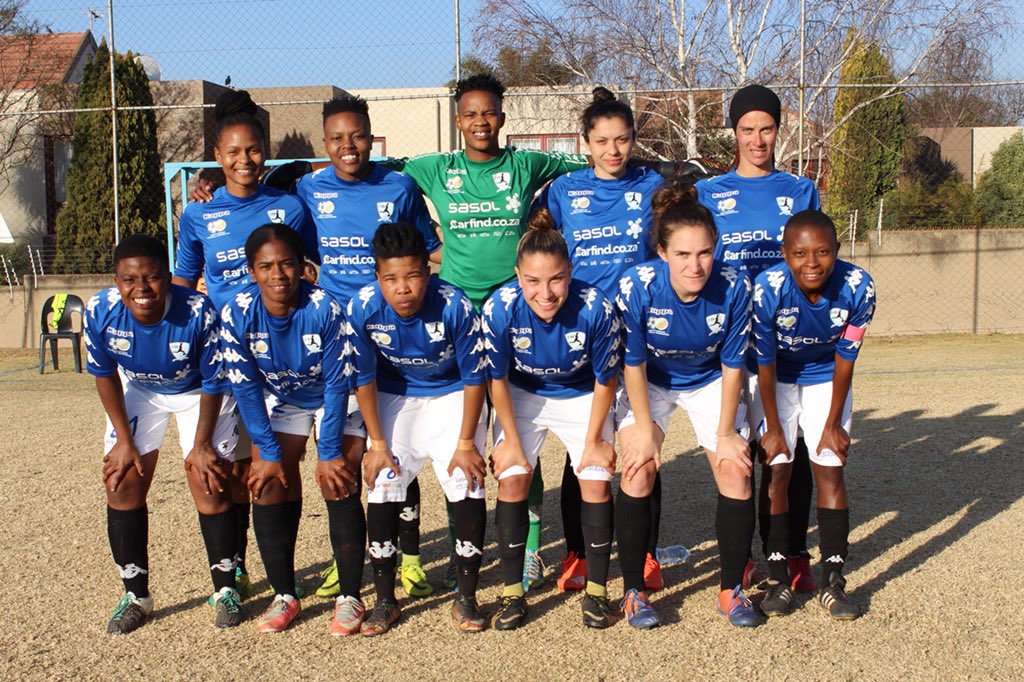
While still turning out for JVW, she also works as a football pundit for Africa’s premier football channel, SuperSport, and most recently was appointed Corporate Marketing Manager for the South Africa Football Association [Safa].
Interestingly, when it was time to set up the Amanda Dlamini Girls’ Foundation, which aims to inspire young girls from rural areas to pursue their dreams, she dug into her bag of skills. This time it was her untapped artistic abilities.
“I was really good with drawing, I just didn’t pursue it because of football. So, when I started the foundation I actually drew my own logo and then asked a graphics person to refine it,” she explains.
Through the foundation, she shares her footballing experiences while also providing career guidance, coaching in life skills and football. She stresses the need to balance education and sport.
After watching the just-ended Olympics recently, she just couldn’t help but wonder what would have happened if she had pursued athletics instead.
Nonetheless, she is grateful for her football journey and admits she wouldn’t be where she is had it not been for soccer.